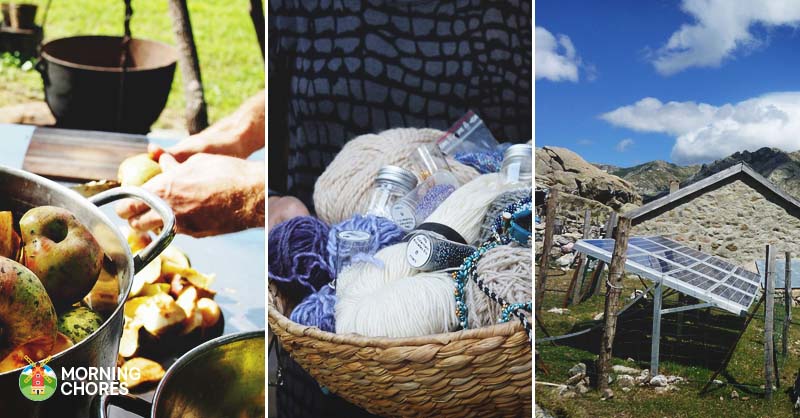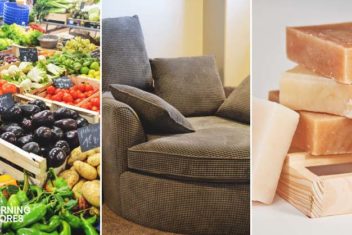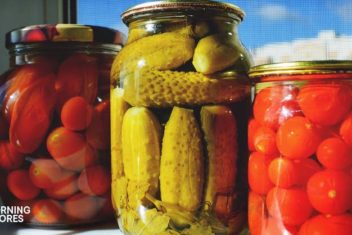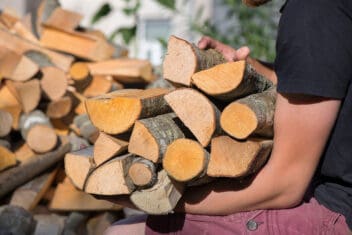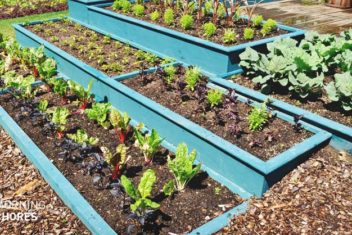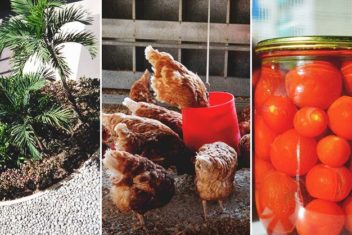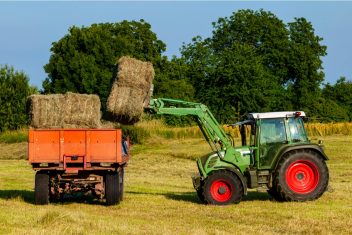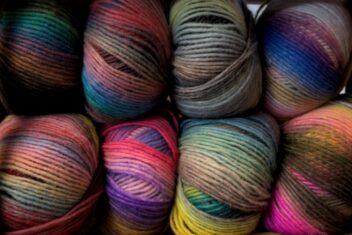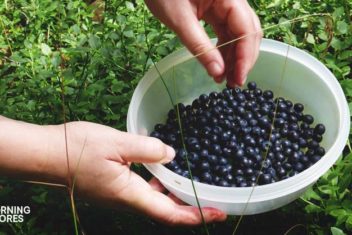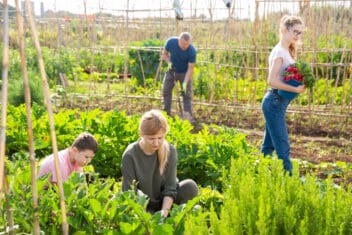What is your goal as a homesteader? Do you want to be healthier? Do you want to be more knowledgeable?
What about becoming more self-sufficient? Does that sound like a reason why you began this crazy journey into a homestead lifestyle?
Well, I’ll be transparent and tell you that being self-sufficient was the main reason I began my homesteading journey. I wanted to be healthier, have more knowledge, save money in the long run, but I knew that if I could homestead, then I wouldn’t have to worry about the high prices from the local grocery store.
Also, I wouldn’t have to worry about how expensive it became to go to the doctor. I also wouldn’t have to worry about the world going crazy if we had a bad storm and power outages for days. If I had all I needed right within my property lines, I was as set as any could be.
But what do you need to be self-sufficient? I’m glad you asked!
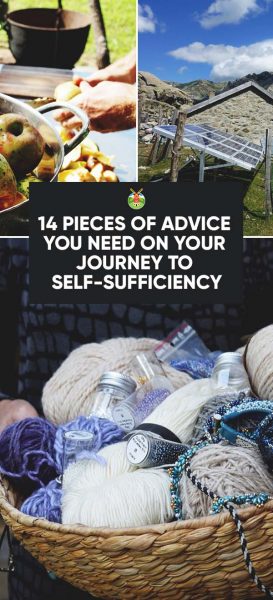
Your Journey to Self-Sufficiency
Here is what you need to be self-sufficient on your land:
Disclaimer: Becoming self-sufficient is not an overnight process. It is a journey. This is meant as a list for you to work from. You may want to add to it or take some away from it. Self-sufficiency can look different for everyone.
1. We All Need More Energy
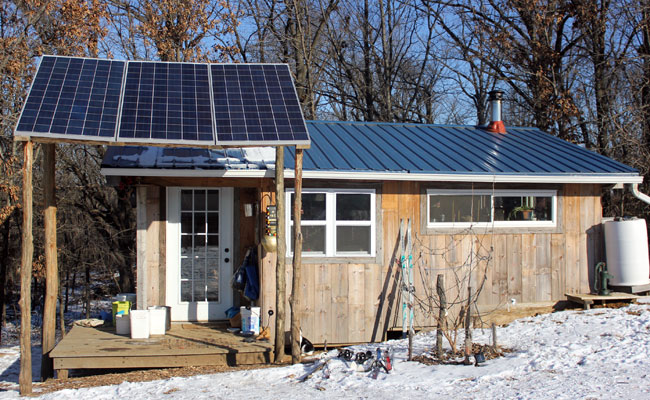
via Homestead Honey
If you are going to be self-sufficient, then you need to think about energy. Most of us are on the electrical grid. If something happens to it such as a powerful storm blows through or a terror attack, what is going to happen?
Well, you are going to go back to the way our ancestors lived for a few days or longer, depending on the severity of the situation. This will mean no refrigeration, cooking, heat, or air.
So if you want to be self-sustained, then you need to take this into consideration. Either you need a few sources in play so you can cook or refrigerate food without power.
Or you’ll need to come up with an alternative power source. My current hope is to install solar panels very soon.
But there are a bunch of other options such as wind power, water power, and solar power, plus batteries to store energy when the sun is not shining and the wind is not blowing. If you are going to be self-sufficient, then you have to be prepared either with a renewable energy source or knowledge to make it without power.
For me, I prefer to have both.
2. Heat Things Up
You need a heat source if you are going to be self-sufficient. This can be as simple as depending upon a backup energy source, or you can have another option for heating altogether.
For instance, if you want to depend upon a backup energy source, then you’ll probably have solar panels installed, a generator, or run off of water or wind power.
Or if you choose to have an alternative heat source, then you’ll probably have something along the lines of a burn barrel, fireplace, or wood stove.
Either way, you need to know how you are going to stay warm if you don’t have your regular sources of heat available. We used to have a wood stove in our old home, and I loved it. Our new home is much smaller so we are struggling to find a place to put a wood stove, but I’m hopeful we’ll get to add one soon.
3. Ice, Ice Baby
Staying cool may not be a huge concern to you right now if you have central cooling, but let the power go out in the middle of the summer and you could feel differently. It is very important to have the knowledge to be able to stay cool if you need to.
So you’ll need to know to keep fans on hand, ice and water easily accessible so you can place your feet and palms in them to cool down, or moist wash rags on hand to cool your face down.
When normalcy changes in a flash, you’re going to need to know how to do these things so you won’t suffer as much. Truly, staying cool to some can be the difference between life and death.
4. Bring Out Your Inner Iron Chef
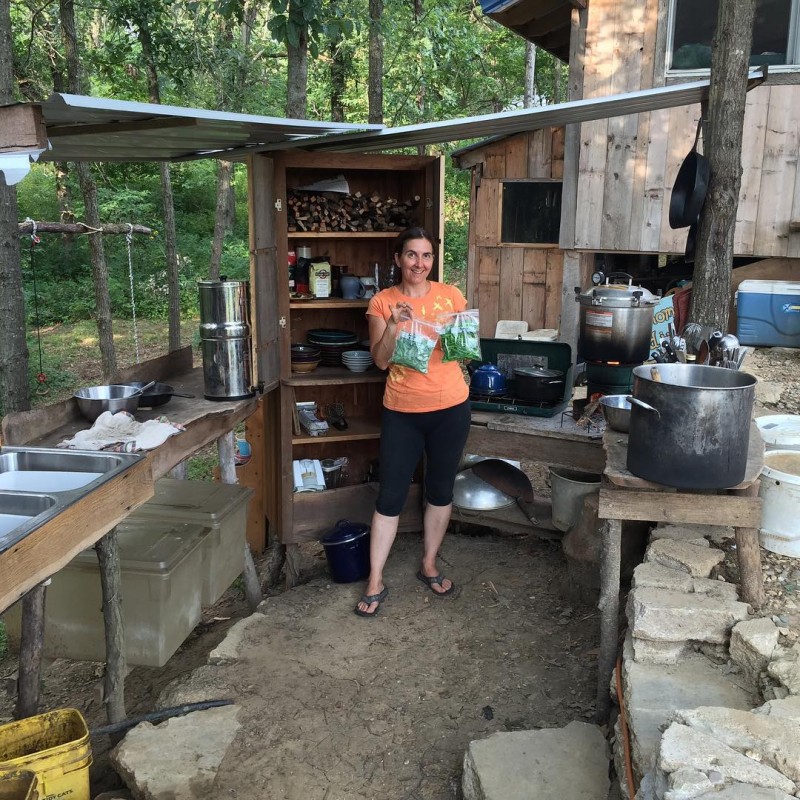
via Natural Times
If you couldn’t go to your kitchen and fire up your electric stove or your microwave, could you cook dinner?
Well, if you answer no to this question, then you need to start coming up with cooking alternatives even if you don’t use them regularly. The idea of being self-sufficient doesn’t mean that you have to use all of these methods regularly. It just means that you have them and are prepared if you need to use them.
So for cooking, if you have a wood stove for heat, then you could cook on it too. If you don’t have a wood stove, then think about having an outdoor kitchen to cook on or learn how to cook on an open fire.
5. Easy Access to Water
Next, you’ll want to think about water. You must have water in order to survive and so do your plants and animals.
You need to consider how you can access water easily and without electricity if you need to. I’m on well water so that means if my power goes out, I need to have a hand pump to pull water from the well.
But we also have a pond next door, on our property, and a creek that runs along the backside of our property. All of these would be viable water sources if we absolutely needed them.
However, if you live in the city and are on city water, then you may want to consider some of these tips for harvesting your own water for yourself, animals, and plants.
6. You Gotta Eat (And So Do They)
We’ve covered water but what about food? If you wish to be self-sufficient, then you should really begin planting things now. We grow a garden each year in the spring and in the fall. That way I can preserve my own food.
But we also have planted a lot of perennial plants that will provide food year after year without any extra planting. We have an orchard and perennial herbs that will grow back every year.
So begin thinking about what food you can grow right where you are. No matter how small of an area you live in, you should be able to grow something. Consider container gardening if nothing else.
However, you also need to consider your animals as well. Can you provide food for them? If the answer is yes, then you’ll probably want to start now. This will not only expand your knowledge but also save you money. Check out this simple way to grow food for your animals.
7. Nature’s Medicine
You need to consider your health when thinking of becoming self-sufficient. What if you can’t or couldn’t get to a doctor? Would you know what to do? This is an area I’m still working on myself because there are so many different options for healing.
To begin with, you could raise bees to partake in the health benefits of honey. You could raise herbs to partake in their health benefits.
But you could also get into essential oils by either purchasing or making your own to benefit from their healing elements as well. This is a personal decision but one you’ll need to make in order to be more self-sufficient.
8. Money, Money, Money
What would you do if your job fell through tomorrow? Most of us might panic.
But if you are working on other side incomes that are all strictly based on our land, then you may not be as concerned. This is a solid mentality to adopt because on our land we are able to raise items that are a necessity to life.
For instance, if you raise produce, everyone needs to buy fruits and vegetables. If you raise bees, a lot of people love honey. If you raise plants, people purchase flowers and vegetable plants every year. The list goes on and on.
Your success will depend upon how well you market yourself and the quality of product you produce, but if you create a solid business right from your home, then you won’t feel so mortified if something happens to the company that you work for. This is all part of being self-sufficient, all the way down to your income.
9. Security
Have you ever thought how you would protect yourself if no one was around to help you? I didn’t use to think about it until I moved out in the country.
Then we had some scary person show up on our doorstep one night. She was under the influence of something, and we had to wait a long time for the police to arrive to remove her from our property. Originally, we thought someone was after her so we tried to help her.
But after talking to her for a few minutes, it was clear the paranoia wasn’t real. As I was sitting in my home that night waiting on the police, I was thinking about my kids that I had sent to their rooms. I thought, how will I protect them if this person flips out?
When the police finally arrived, they told me that if anyone else ever showed up at my door to feel free to defend myself in whatever means I needed to because it would always take them a while to get to us because of how far out we lived.
After that night, I made a plan and arrangements for how I would defend my family if I ever had to. This is a personal choice as to how you will do this, but you need to know how to protect yourself and your family if you ever have to. This is also part of being self-sufficient.
But keep in mind, it may not always be people that you have to defend yourself, family, or property from. If you live out in the country like I do, then it could also be a predator. Regardless, you need to know how to defend yourself and be prepared to do so.
10. Got Milk?
Now that we’ve covered monetary means of sufficiency, food for yourself and animals, water, and protection let’s talk about specifics in food for yourself. You need dairy. Your bones require it.
So you need to consider how you are going to supply this for your family. It could be by raising a family milk cow.
For us, we raise goats. They produce a decent quality of milk, are smaller so they don’t consume as much, you can use their milk for many things and I love goats.
But this is something you’ll need to consider because you will always need some form of calcium in your diet.
11. Beef…It May Be For Dinner
You will also need a meat source. This could be anything from beef, chicken, rabbit, goat, quail, or any other type of meat you like and can raise.
For us, we raise rabbits, chickens, and goats as a meat source. This is a great way to keep our grocery costs down since we rarely ever have to purchase meat from the store.
Another great meat source we partake in is deer. It fills our freezer every winter and is a delicious lean meat that you can get yourself by hunting.
12. Fruits and Veggies
You will always need fruits and vegetables. I mentioned earlier that we grow a garden twice a year. This is important so I can preserve as many vegetables for our family as possible.
But we also have an orchard that gives us the fruits we need. If you have even an acre of property, you can grow a decent size garden and plant a few dwarf fruit trees to make yourself more self-sufficient.
So keep that in mind on your journey for self-sufficiency.
13. Carbs and Sugar
You will also need to incorporate grains and sugars into your diet. Our way of doing this to be more self-sufficient is by raising honey bees for honey. This is a natural sugar that is healthy and tastes great too.
But I also grow stevia in my herb garden each year. You can make an extract from it and use it as a source of sugar too.
However, you can also grow grains in your garden. During the winter, you may want to protect your garden’s soil. If so, then plant wheat out in your garden. You can harvest it to make your own flour and it also will protect your soil as well.
14. Crafting Knowledge
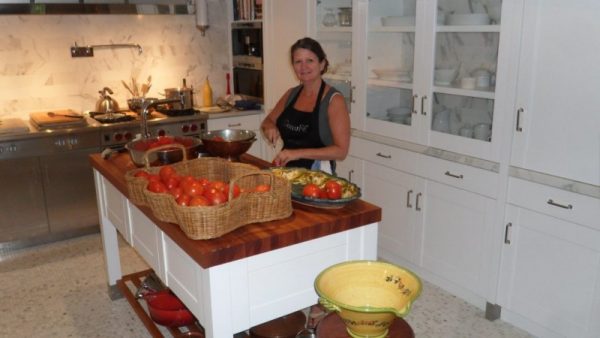
via Lylalei
Finally, to be more self-sufficient, you’ll need some knowledge on how to craft certain items. For instance, crocheting and knitting clothing, gifts, or decorative items is a great skill to have. You need to know how to do these things from scratch.
Plus, you need to know how to can and preserve food to be self-sufficient. This is a craft as well that will help you to be less dependent upon the rest of the world for basic everyday items.
But any other skill you can learn, such as welding, farming, gardening, blacksmithing, etc., you’ll be glad for the knowledge because that is one more thing you can do yourself. Knowledge is definitely power when it comes to taking care of yourself, family, and homestead.
Well, those are the 14 things I think you need in order to be self-sufficient, but I’m sure the list could grow exponentially from there.
Remember, self-sufficiency looks different for everyone so this may or may not be your idea of it. That’s okay, as long as we are all happy with the goal we are working toward.

